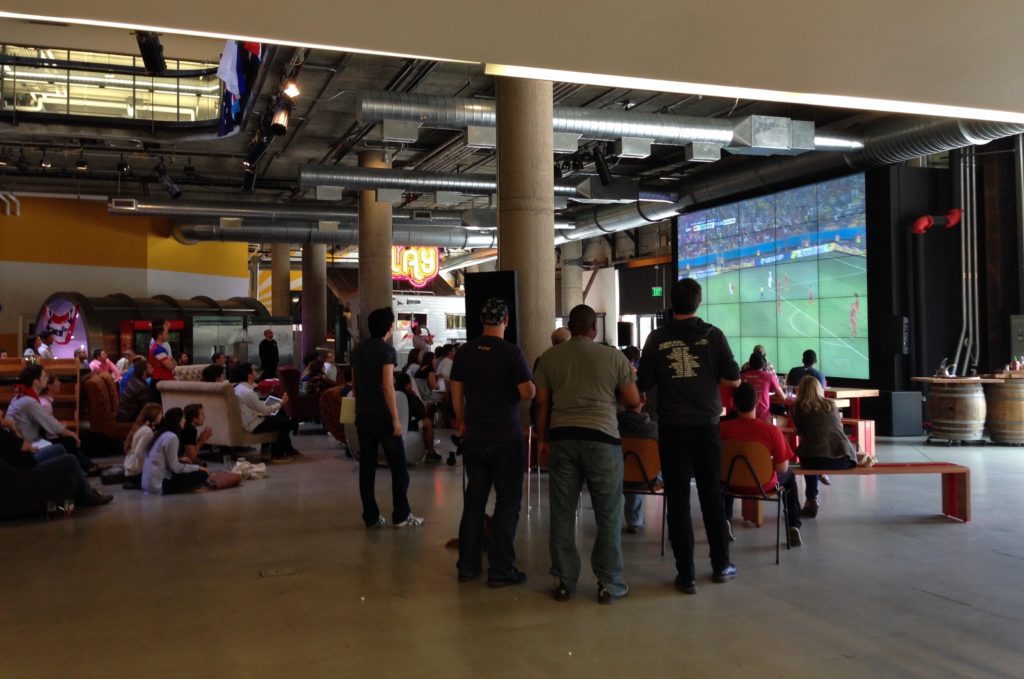To the urgent question of crunches. It is quite realistic to manage a game project in real time so as not to overwork developers. This opinion belongs to Tami Sigmund, producer of Zynga Studio.

Zynga Office
Working with game services is easier to adjust to a regular schedule than developing large AAA.
This is true for studios that do their best to build an “anti-crisis culture” and take care of employees’ personal time, Sigmund said in an interview for Gamasutra.
It's all about the culture inside the studio. The crisis should be considered by it as a production failure at all levels. It is also necessary to build the workflow in such a way as to avoid a crisis at any cost. These two tasks are inseparable from each other if you really want to get rid of crunches.
Zynga Producer
She herself is lucky to work in places where work-life balance is valued. In general, Sigmund has given 12 years to the gaming industry. She admits that over the past year and a half in the Zynga Austin division, she has never left work later than 17:30.
From personal experience, Sigmund has learned several tricks that allow you to minimize the likelihood of crunches. But all of them are more suitable for managing live ops projects.
- Set reasonable deadlines for the release of innovations. For example, in games led by Sigmund, new features are launched strictly every two weeks (even if they are ready earlier). This time is just enough for the team to create features and debug.
- To put extra time in the schedule in case of force majeure. But not more than 20% of the regular time. And it is better not to waste the “reserve” if current tasks do not require it.
- In the case of force majeure, openly admit that the crunch is a production failure, and not a “normal situation”. The mistakes that led to the staff’s rework should not be repeated in the future. To do this, the studio should regularly hold a retrospective.
- Do not force the same employees to work out of hours. Try to alternate them so that the same people do not get tired. And be sure to give them half a day off if they stayed up late at work.
- Being a manager, do not recycle yourself. Management should be an example for employees. You can’t, for example, send them official emails or messages to Slack at night. If developers get the impression that the boss is working while they are resting, it will cause them an unnecessary sense of guilt.
- In general, monitor the morale of the team. This is especially true for game service developers, because creative people can get tired of routine work on a single IP. Therefore, the management should inspire them to explore new tools and ideas and look for ways to breathe new life into the project.
Sigmund also noted that in the field of mobile and social games, studios are more likely to develop protection against crunches. The developers of large AAA have a different attitude to the issue, for them crunch is a common thing. A good example here would be the development of Red Dead Redemption 2 from Rockstar, as well as the less successful Anthem from BioWare.
Also on the topic:

